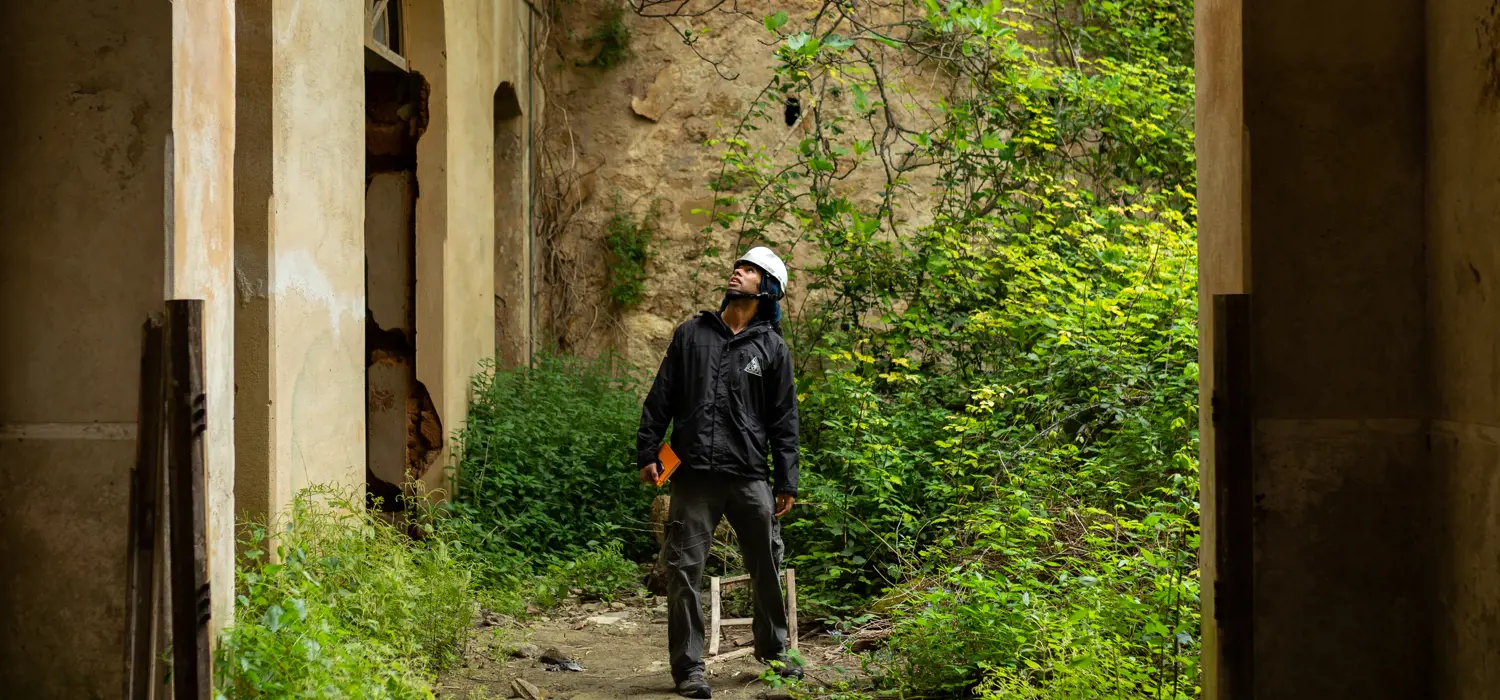
Structural engineer
Structural engineers design buildings, bridges and other large structures such as wind turbines and rollercoasters. They make sure these structures are strong, stable and safe.
What is structural engineering?
Structural engineers design buildings, bridges and other large structures such as hospitals, wind turbines and rollercoasters. They ensure these structures are designed to be strong, stable and safe.
What do structural engineers do?
Structural engineers help design structures such as buildings, rollercoasters and bridges, making sure they are safe and stable from a technical point of view. Structural engineers carry out calculations to ensure the correct material is used to construct a building, making sure it can withstand its intended loads and stresses. Structural engineers use a variety of computer programmes to simulate how structures will be influenced by things like bad weather. Structural engineers work with architects, other engineers and builders to ensure a structural design works well for its intended use.
What makes structural engineering different?
Structural engineering is an important branch within the wider field of civil engineering. Civil engineering is more widely focused on all aspects of the things being built around us. For example, civil engineering courses include modules on structural analysis but also cover other areas such as environment, geotechnics, hydraulics, transport, and marine engineering. Structural engineering is more focused on ensuring structures are safely designed, constructed, and maintained. Structural engineers are specialists in creating how to create the ‘bones’ of a building using beams, columns and foundations.
Factfile
- Average starting salary (graduate)
- £24,000-£28,000
- Example job titles
- Wind turbine structural designer, structural engineer
- Desirable skills
- Maths knowledge, knowledge of building and construction, knowledge of engineering science and technology, computer skills, problem solving
- Useful subjects
- Maths, physics, geography, computing, art and design

Working life
What is it like being a structural engineer?
Structural engineering roles can be very varied. Structural engineers are involved at different stages through the life cycle of a structure. You could be working in the design stages of a structure’s life; investigating into material properties like concrete and steel, carrying out calculations to ensure a structure is strong enough, you could be using computer software to ensure a building is stable in adverse weather. Structural engineers are also involved during the construction process, ensuring the project is being completed in the right way using the correct techniques on site. This would mean regular site visits. Or you could be looking at buildings which already exist, inspecting unsafe structures to determine if they need to be demolished or work out why structures failed.
As a structural engineer you could work in an office, on a construction site or demolition site. On site you would have to wear safely clothing and equipment.
How do structural engineers contribute to society?
Structural engineers ensure the structures around us are designed to be safe, stable and constructed correctly. Structural engineers benefit our day-to-day lives, designing buildings, bridges and hospitals. Some projects also benefit the environment, designing buildings which are energy efficient or even wind turbines used for generating clean energy. As a structural engineer you could also be involved with projects relating to entertainment, you could be designing a cinema or even a rollercoaster.
Future
Where could structural engineering take me?
You could move into a project management role, overseeing large projects from start to finish. Or you could choose to specialise in an area such as renewable energy projects, or investigating why structures fail. Some structural engineers go on to teach the subject.
What if I wanted to change to structural engineering later
If you have a closely related degree like science or mathematics you could do an accredited MSc to convert to Structural engineering.
For example, a mathematics graduate, a course in structural engineering.
Become a structural engineer
You can get into this job through:
- a university course
- an apprenticeship
- a college course
Usually, you will need A levels in maths and physics to get onto a structural engineering degree course.
Look out for degree course which are accredited by the Institution of Structural Engineers or other professional bodies.
Think engineering could be for you?
Become an engineer
